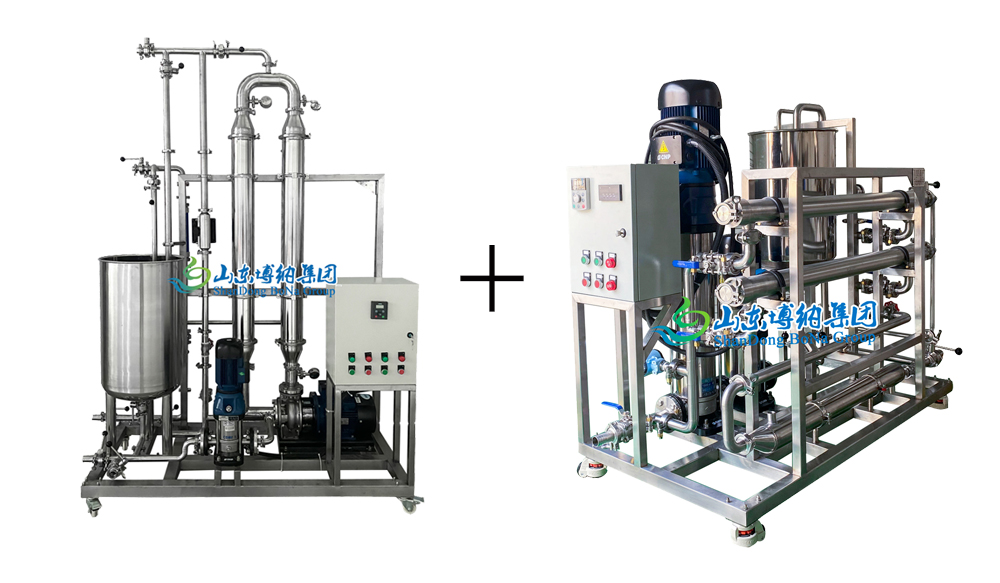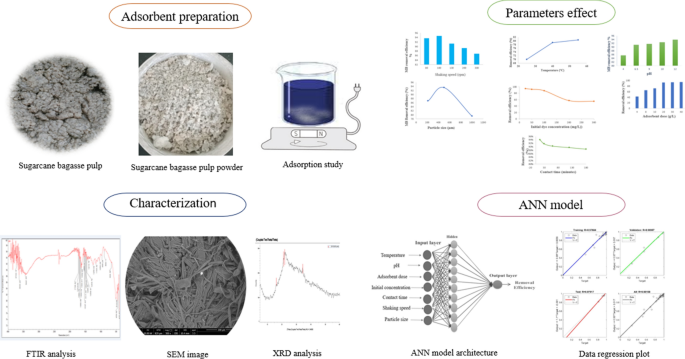Discover the Ingenious Benefits of Products From Sugarcane for Sustainable Living
Sugarcane has become an essential source in the pursuit for sustainable living. Its diverse applications extend eco-friendly product packaging, renewable resource, and much healthier food choices. As markets seek environment-friendly options, sugarcane's flexibility offers encouraging remedies. Nonetheless, the real possibility of sugarcane prolongs past its current usages. Discovering its cutting-edge benefits could expose new paths toward a much more lasting future. What various other opportunities might this impressive plant hold?

The Surge of Sugarcane as a Lasting Resource
As international awareness of environmental issues grows, sugarcane has emerged as a noticeable sustainable source. This versatile plant offers a variety of advantages that add to environment-friendly practices. Sugarcane is an eco-friendly resource, efficient in flourishing in varied climates while soaking up carbon dioxide, thus alleviating greenhouse gas exhausts. Its rapid growth cycle enables regular harvesting, causing a continual supply of raw material.Additionally, sugarcane cultivation commonly requires less water compared to other crops, making it an effective alternative in water-scarce regions. The spin-offs of sugarcane, such as bagasse and molasses, can be repurposed for different applications, lowering waste and promoting round economic situation concepts. Moreover, improvements in agricultural methods have actually brought about even more lasting farming techniques, even more boosting sugarcane's environmental account. As customers progressively look for sustainable choices, sugarcane stands apart as a sensible alternative for those committed to minimizing their environmental impact.
Biodegradable Packaging Solutions
Just how can biodegradable packaging options transform the method consumers come close to sustainability? By using sugarcane-based materials, these innovative remedies supply an engaging choice to typical plastics. Biodegradable product packaging made from sugarcane decomposes normally, markedly lowering garbage dump waste and greenhouse gas discharges. As consumers become increasingly mindful of their ecological effect, the need for sustainable packaging remains to rise.These sugarcane-derived items not just serve practical purposes yet also straighten with eco-conscious consumer values. They offer a substantial method for companies and individuals to add to a circular economy, advertising resource effectiveness and reducing ecological impacts. Additionally, as markets take on biodegradable options, they cultivate a culture of sustainability that reverberates with an expanding market seeking liable choices.In essence, eco-friendly packaging remedies from sugarcane represent a vital advance in sustainable methods, empowering consumers to make ecologically friendly decisions without compromising convenience or quality.
Renewable Resource Generation From Sugarcane
A substantial portion of renewable resource generation can be stemmed from sugarcane, showcasing its flexibility past typical agricultural uses. Sugarcane biomass, including bagasse and leaves, is a powerful resource for bioenergy manufacturing. This biomass can be exchanged biofuels such as ethanol, which works as a cleaner option to fossil gas. Additionally, the burning of sugarcane results generates steam and electrical power, supplying a power resource for sugar mills and nearby communities.The growing of sugarcane likewise adds to carbon sequestration, as the plants soak up co2 throughout their growth cycle. By utilizing sugarcane for energy, waste is reduced, and lasting methods are urged. This renewable energy technique not only supports power demands yet additionally promotes rural development, creating work in bioenergy fields. In general, sugarcane sticks out as a principal in the shift to lasting energy solutions, lining up with worldwide efforts to decrease carbon impacts.

Eco-Friendly Textiles and Fabrics
Environmentally friendly textiles and textiles stemmed from sugarcane present an encouraging choice to conventional materials. These naturally degradable alternatives not just reduce ecological impact however also provide toughness and performance equivalent to traditional materials. Lasting manufacturing procedures better enhance their appeal, making them an essential component of a lasting way of living.
Biodegradable Textile Options
Why is the adjustment towards biodegradable textile alternatives necessary for sustainable living? The enhancing recognition of environmental degradation has triggered a search for options to standard textiles, which usually contribute to contamination and waste. Eco-friendly fabrics, derived from sustainable resources such as sugarcane, use an appealing remedy. These products disintegrate naturally, decreasing garbage dump accumulation and decreasing environmental impact. Furthermore, they can aid lower carbon footprints and reliance on nonrenewable fuel sources. As customers come to be a lot more eco-conscious, the need for lasting textiles grows, encouraging makers to innovate and invest in eco-friendly options. This modification not only sustains sustainable methods yet additionally fosters a round economy, leading the way for an extra accountable strategy to fashion and textile production.
Sturdiness and Efficiency
Toughness and performance are crucial aspects when assessing green fabrics and fabrics. Sugarcane-derived materials show excellent toughness and durability, making them ideal for different applications. These textiles frequently display exceptional moisture-wicking properties, which enhance convenience in day-to-day wear. Furthermore, their natural fibers add to breathability, making sure that garments stay fresh and wearable even sought after problems. The performance of sugarcane-based materials extends to their resistance to tear and use, permitting items to maintain their honesty in time. These green textiles can be treated to improve UV protection and discolor resistance, meeting the sensible needs of customers without endangering sustainability. Eventually, sugarcane materials offer a harmonious equilibrium of longevity and performance, appealing to eco conscious individuals.
Lasting Manufacturing Processes
The excellent durability and performance of sugarcane-derived textiles are matched by lasting production processes that prioritize environmental responsibility. These important link processes utilize renewable sources, reducing reliance on fossil fuels and minimizing carbon impacts. By utilizing the byproducts of sugarcane cultivation, producers can create environmentally friendly materials while promoting waste reduction. Advanced methods, such as water-efficient dyeing and naturally degradable therapies, additionally improve the sustainability of these textiles. Additionally, using safe chemicals assurances that the manufacturing process does not harm ecosystems or human wellness. This commitment to sustainability not only attract environmentally conscious customers however likewise supports neighborhood economic situations by advertising sustainable farming methods. Generally, sugarcane-derived fabrics represent a significant action in the direction of a greener future in the style sector.
Sugarcane-Based Biofuels and Their Impact

Sugarcane-based biofuels have arised as a significant alternative power resource, supplying an eco-friendly solution to the world's expanding energy demands. These biofuels, derived from the fermentation of sugarcane juice or molasses, present a more lasting option compared to fossil fuels. Their manufacturing process generates lower greenhouse gas exhausts, adding to climate adjustment mitigation efforts.Additionally, sugarcane biofuels can boost energy security by diversifying power resources and decreasing dependence on imported oil. The growing of sugarcane also advertises rural development, creating tasks and promoting neighborhood economies.However, worries concerning land usage and food competitors persist, as enhanced biofuel production might impact food supply chains. Sustainable agricultural techniques are vital to balancing these contending rate of interests and making certain that biofuel manufacturing does not weaken food protection. In general, sugarcane-based biofuels stand for a promising avenue for a greener energy future, offered that their environmental and social ramifications are carefully managed.
Much Healthier Alternatives: Sugarcane in Food Products
While lots of customers look for much healthier alternatives in their diets, sugarcane products provide a healthy option to fine-tuned sugars and man-made sugar. Derived from the all-natural removal of sugarcane juice, these items retain vital nutrients, consisting of minerals and vitamins, that are frequently lost in refined sugars. Sugarcane consists of anti-oxidants and dietary fiber, adding to overall health and wellness and wellness.Many health-conscious people are turning to sugarcane syrup and jaggery, which provide a reduced glycemic index compared to traditional sugars, making them ideal for those taking care of blood sugar degrees. In addition, sugarcane-derived sweeteners can improve the flavor of different recipes without the negative results connected with man-made additives.This change towards all-natural sweetening representatives not only promotes far better dietary selections yet likewise aligns with lasting living practices, as sugarcane is a renewable resource. Sugarcane items are arising as beneficial alternatives in the domain name of food products.
The Future of Sugarcane in Sustainable Advancements
The future of sugarcane is positioned to include cutting-edge applications that expand beyond traditional usages. Its possible as a resource for eco-friendly product packaging solutions and renewable resource sources highlights its role in sustainable techniques. Checking out these advancements could significantly impact ecological conservation and resource monitoring.
Eco-friendly Product Packaging Solutions
A raising number of firms are transforming to biodegradable product packaging services originated from sugarcane as a promising choice to traditional plastics. These cutting-edge materials, frequently made from sugarcane fibers and bioplastics, break down normally, lowering the long-lasting ecological impact connected with traditional plastic waste. By using sustainable resources, sugarcane-based packaging adds to a much more lasting production cycle, aligning with worldwide efforts to deal with air pollution and environment modification. Additionally, these services commonly preserve the sturdiness and capability needed for numerous applications, from food containers to delivery materials. As consumer demand for environment-friendly choices expands, companies embracing sugarcane product packaging not just improve their brand name picture yet additionally play a crucial function in cultivating a round economic situation, leading the way for a greener future.
Renewable Energy Sources
Biodegradable packaging solutions are simply one facet of the broader potential of sugarcane in advertising sustainability. An additional significant application lies in renewable resource resources. Sugarcane is a versatile crop that can be utilized to produce biofuels, such as ethanol, which functions as a cleaner option to nonrenewable fuel sources. The fermentation procedure of sugarcane juice returns ethanol that can power vehicles and produce electricity. Additionally, the results of sugarcane handling, like bagasse, can be used to generate biomass energy, providing a lasting and reliable method to harness energy. This double function as both a source of biofuel and biomass emphasizes sugarcane's possibility in reducing carbon emissions and supporting a change to a more lasting energy landscape in the future.
Frequently Asked Concerns
How Is Sugarcane Collected Sustainably?
Sugarcane harvesting can be sustainable through strategies like manual cutting, which lessens soil interruption, and making use of equipment that decreases fuel intake (Products From Sugarcane). Plant turning and integrated bug management additionally boost ecological health and promote long-term soil fertility
What Are the Ecological Impacts of Sugarcane Farming?

Can Sugarcane Products Be Reused?
The inquiry of whether sugarcane products can be reused reveals a favorable overview. Many sugarcane-derived materials, such as bioplastics and packaging, are designed for recyclability, contributing to a more sustainable waste administration technique within ecological factors to consider.
Exist Any Type Of Downsides to Utilizing Sugarcane-Based Products?
The drawbacks of utilizing sugarcane-based items consist of prospective land use competition with food crops, obstacles in large-scale manufacturing, and problems concerning the ecological effect of monoculture farming practices, which can reduce biodiversity and soil health.
Exactly How Does Sugarcane Farming Affect Local Communities?
Sugarcane Look At This cultivation effects local areas by giving employment possibility and boosting regional economic climates. Nonetheless, it can also lead to land conflicts and ecological concerns, impacting agricultural methods and neighborhood health, demanding a well balanced method to development. Advancements in farming methods have actually led to even more lasting farming methods, even more boosting sugarcane's environmental profile. Additionally, the burning of sugarcane results creates steam and electrical energy, offering a power resource for sugar mills and neighboring communities.The growing of sugarcane also contributes to carbon sequestration, as the plants take in carbon dioxide during their development cycle. By utilizing sugarcane for power, waste is reduced, and sustainable practices are motivated - Products From Sugarcane. Sugarcane has antioxidants and nutritional fiber, adding to general health and wellness and wellness.Many health-conscious individuals are turning to sugarcane syrup and jaggery, which offer a lower glycemic index compared to traditional sugars, making them ideal for those managing blood sugar levels. Furthermore, the results of sugarcane processing, like bagasse, can be used to produce biomass power, using a reliable and sustainable approach to harness energy